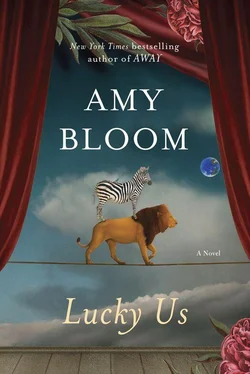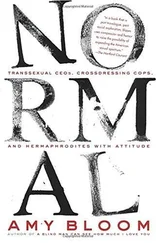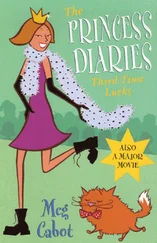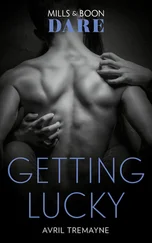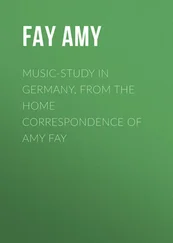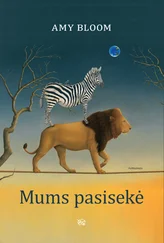“It’s just us,” Danny said. I turned out his light.
He did not then list the people who were gone, and neither did I. He never said that of all the people to wind up with, I was undoubtedly the least equipped and, overall, the worst. I thought it was too bad that he had to be so tactful, so young.
THE NEXT DAY, I washed the kitchen floor, which I had managed to do not once in my short lifetime, set the table, and made dinner, and afterward, I washed the dinner dishes and made Danny dry. I took out some cookies and chocolate milk, to bribe him through the cleanup, and he watched me as if I had some bad news I was going to share.
“Everything’s fine,” I said. “I just thought a chicken dinner might be nice.”
“It’s nice,” Danny said.
“I thought I could tell you a story,” I said. “Not a bedtime story. You’re too old. But, still. I could tell you a story.”
Danny said, “Can I go outside?”
I listened for the whapada-whap of the tetherball and watched the clock for five minutes. I went outside and grabbed the ball.
“My serve,” I said, and I hit the ball hard, but a little low.
We were remarkably evenly matched. I had some height; he was determined.
“ONCE UPON A TIME,” I said, afterward, “there was a little boy named … Harry.”
Danny smiled and stretched out on the couch.
“Or Roland De Rapscallion,” I said, rolling my r ’s. “Maybe his name was Fat-Fingered Louie.”
Danny flipped around, so his head was near mine.
“No,” he said.
“All right,” I said. “You got me. His name was Danny. Danny was an amazing boy. He had light-brown hair, which was, amazingly, just the right color for a boy with brown eyes, and when he got to be big, he wore amazing eyeglasses, which was especially good because it helped him see, and he saw a lot. A lot. He needed to be good at seeing and thinking because Danny’s life had not gotten off to an easy start. When Danny was born …” I stopped.
All I knew about Danny’s past was what Reenie told me — that he’d said his mother had died and his father had put him and his brother in the Pride of Israel. I didn’t know if he remembered more and didn’t say or if the door had shut firmly on all that and there was no reason for me to poke my nose in. On the other hand, I was a lot older and had forgotten very little and forgiven less, and it might be the same for him. I wiggled my hand, for Danny to take over.
“Danny was born to his mother and father and his brother. When Danny was very little”—he made his voice squeak, to show how little—“his mother died. He was too little to know what happened but Danny had a brother, Bobby, and Bobby said that their mother fell off a roof and their father was so sad and so messed up, he had to take Danny and Bobby to the orphanage, to take care of them. Which wasn’t so bad, but Danny didn’t like it. He wanted to go home. His brother, Bobby, said they didn’t have a home anymore, that Pride of Israel was their home, and Mr. Greenberg was like their father.”
“After a while,” I said, “he sort of got used to the place. And Mr. Greenberg was …”
“Okay,” Danny said. “Danny was one of the little kids. Everyone was okay.”
“So, then a crazy thing happened. These two women came along — out of nowhere …”
“Out of the blue,” Danny said.
“That’s right — out of the blue. And they wanted a little boy. They wanted an amazing little boy with brown hair and brown eyes. They wanted a little boy to join their family. And most of all, at home, there was Reenie Lombardo, who was waiting for her friends to find her the perfect little boy.”
“Why didn’t she go herself?”
“That’s an excellent question,” I said. “Why didn’t she?”
“Because she was cooking,” he said. “She was a really good cook and she made dinner for the Torellis every night.”
“That’s right. She was a great cook. So, these two women, Itsy and Bitsy, saw this one little boy. ‘Holy cannoli,’ Itsy said to Bitsy. ‘That’s the one.’ ”
“Who was Itsy?” Danny said.
“Who do you think?”
“You’re Itsy,” he said.
“So Itsy said, ‘There’s something about him.’ ‘You’re right,’ Bitsy said. So they asked the little boy to come home with them. He said okay, even though he had to leave Bobby. They took him home and after a long trip—”
“And a bath,” Danny said. “Reenie gave me the longest bath ever. I never had a bath like that.”
“That’s right. He had a very long bath and he was amazingly clean and when the steam cleared, he looked at Reenie and she looked at him, and I know she felt that she had found the amazing little boy she was looking for.”
Danny turned his face toward the cushion. I put my hand on his back.
“Come on, hero,” I said. “Maybe that’s it for tonight.”
We put our arms around each other and I tucked him in.
“It’s a good story,” he said. “But kinda sad.”

WE TOLD EACH OTHER the story every night for weeks, and we managed to get in some unkind remarks about Iris’s disappearance and a few jokes about the rabbi at Edgar’s funeral. I said that Edgar had saved Danny’s life during the fire and we both liked that. We didn’t dwell on the fire but Danny told me he could see the smoke, even from Edgar’s window, and I knew that meant that he had heard the sounds as well. We told the story of our move from the Torellis’ and the happy landing on the shores of Old Tree Lane. (So long, Torellis! Hello, Old Tree Lane and crazy Mr. Mason across the street, with the overalls and no underwear!)
I made myself drive back to the Pride of Israel orphanage to find Danny’s brother, the awful and adorable Bobby, but I failed. Narrow mattresses were stacked on the lawn. Window screens were propped against the railings. I walked across the playground and through the front door, propped open with a rock. They had found a permanent home for every American child, the social worker said. The end of the war was a good time for that. They were closing their doors at the end of the month. I saw boxes and crates and bed frames behind her. I was glad to go home and go on with the story of Amazing Danny, whose original last name was lost to him, and to me.
RUTHIE POST USED TO TELL DANNY THAT THE HOUSE OF THE Lord had gold plates and sparkling fountains and beautiful fruit piled on silver platters. Dorothy Berman’s house was just like that.
“Pure gold basins. Wicker trimmers. Gold spoons and hinges of gold, for all the doors and inside and outside. Everywhere. That’s what it says in the Bible. Kings seven fifty.” Ruthie whispered to Danny while an old lady in a gray dress with a white lacy apron led them to Dorothy’s room. “Everywhere.”
They didn’t even like Dorothy. No one liked Dorothy. Ruthie’s brother told them that in junior high, some people got made fun of and sometimes it was really bad. But in fifth grade, most everyone was in a big pool, moving from year to year. Dorothy Berman stuck out already, and she liked Ruthie and she liked Danny.
Dorothy took them downstairs to the finished basement, set up like a soda shop, with a counter and spinning stools and big pink neon sign that said BERMAN’S. Dorothy leaned against the soda fountain, like it was a baby grand piano. She stretched out an arm, bent her elbow, and rested her brown curly hair on her hand, looking right at Danny. She sang, “Don’t know why there’s no sun up in the sky, stormy weather …” She showed her dimples.
It was worse than embarrassing. It was scary.
Читать дальше
